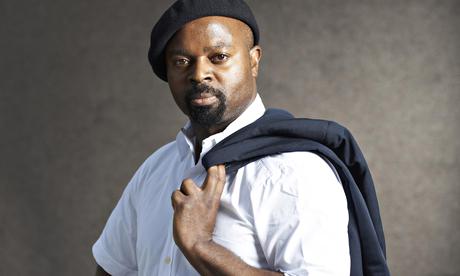
In his recent Guardian essay, “A mental tyranny is keeping black writers from greatness”, Ben Okri laments the “tyranny of subject” over black and African writers, and gives instructions for achieving greatness. Black and African writers, writes Okri, must attain “mental freedom”: we must stop writing about “overwhelming subjects” such as slavery, colonialism, poverty, and war.
For Okri, mental tyranny is defined by repetition and prescription: the problem with black fiction is the repetition of overwhelming subjects, which is prescribed by the demands of a white reading public. It is odd, then, that his essay consists almost entirely of repetition and prescription. His piece immediately recalls Helon Habila’s review of NoViolet Bulawayo’s We Need New Names, published last year, also in the Guardian, in which Habila worries that African fiction is being distorted by an aesthetic of suffering. It recalls Njabulo S Ndebele’s objection to South Africa’s literature of “spectacle” in the 1980s (“Rediscovery of the Ordinary”), and Gerald Moore’s longing for more “private and particular observation” from Francophone African writers in the 1960s (“Towards Realism in French African Writing”). The charge that black and African writing is too political dismisses, with one blow, both the world we live in and the possibilities of political literature. It’s beyond depressing to hear a writer of Okri’s stature, who himself writes powerfully about overwhelming subjects, board this broken-down train.
As for the prescription: if, as Okri insists, “we must not let anyone define what we write”, why should black and African writers listen to Ben Okri? The essay’s demands and commands make it impossible to read as the expression of a quest for freedom. This being the case, I choose to focus on what does make sense in the essay, which is the inflated role of the white reading public. In order to address this subject, I must, like Okri, reduce my field of vision to a very specific section of black and African letters. I must forget the diversity of black writing; I must forget that there is writing in indigenous African languages; I must forget black and African thrillers, science fiction, and romance, and the innovative and varied work showcased by journals like Kwani?, Saraba, Chimurenga, and Jalada.
Very well: for the purposes of argument, let us impoverish black fiction by assuming that it consists only of that which is successful for a white literary establishment. Having done this, it is easy to agree with the points Okri makes about the global reception of black and African literature. Certainly, there is a dominant white reader’s gaze that desires to consume black suffering. Certainly, black writers are unfairly pressured toward a single story. Certainly black fiction is often critiqued and taught stupidly, with grossly heightened attention to content at the expense of form. Certainly the dominant gaze gets confused and exhausted when faced with a writer such as Kojo Laing, Bessie Head, Alain Mabanckou or Yvonne Adhiambo Owuor. These problems, however, are not the fault of black and African writers, and it is appalling that Ben Okri claims they are.
Black and African writing does need freedom. It needs freedom from the repetition of tired complaints and the issuing of dusty and ineffective prescriptions. After all, as Okri begins his essay, “Living as we do in troubling times, we look to writers to reflect the temper of the age” – and that is precisely what black and African writers are doing. Our literature doesn’t need better writers; it needs better readers.

